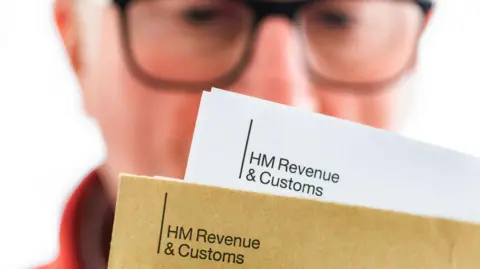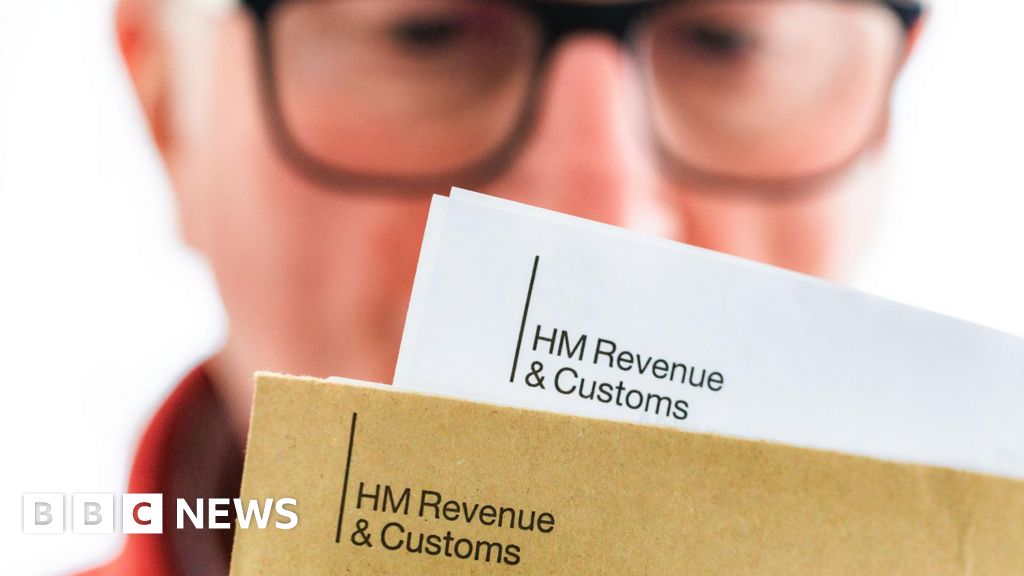 Getty Images
Getty ImagesBillions of pounds of taxpayer money have been lost to error and fraud in tax schemes designed to encourage research and development in business.
Critics say some companies are claiming the tax breaks even if they are not doing any research or development.
HMRC’s latest accounts reveal £4.1bn has been squandered since the schemes were introduced in 2020. It said the levels of error and fraud were “unacceptable”.
The figures come as the new government rows with the old one about a “hole” in the public finances.
Labour says it must make cuts and raise taxes because of hidden spending by the previous administration, but the Conservatives say that they were “open” about the state of the public finances.
The Corporation Tax Research and Development tax relief scheme, for small to medium businesses, and the Research and Development Expenditure Credit, for larger businesses, were designed to reward companies investing in innovation and new ideas – such as tech or drug businesses.
The schemes – which have since been merged into one – allowed companies to offset the money they spent on research and development against what they owed in corporation tax so that they could lower their overall tax bill.
An “enhanced” scheme, which allows businesses to pay even less tax, was introduced in April 2023 specifically for small businesses making a loss.
However, critics have argued that the schemes are being abused by some businesses that fraudulently claim the relief.
Tax expert Colin Haley told a House of Lords committee in November 2022 that dishonest business owners were taking advantage because computers automatically approved any claim.
He added there was a “Wild West” of tax advisors making money by pushing companies to claim the relief.
“Outside advisers cold-call companies all the time saying, ‘We have a special relationship with HMRC. Some 99% of our claims are accepted by HMRC. It’s free money from HMRC.'”
A HMRC spokesperson told the BBC that the “levels of non-compliance… are clearly unacceptable and the public rightly expect us to take action”.
It added it was taking “decisive action against the minority who deliberately set out to abuse the schemes”.
The number of civil servants working in compliance on the research and development tax schemes has soared to 500 from 100 in the last four years.
Over time, the amount of error and fraud has fallen.
In 2020-21 and 2021-22, HMRC says over a sixth of the money spent on the schemes was lost to error and fraud, much more than it had first estimated.
However, in 2022-23 this fell to 13.3% and then to 7.8% in 2023-24.
The tax agency said errors were more common than fraud.
“The term ‘error and fraud’ includes [a] full range of behaviours, from mistakes and failure to take reasonable care, through to deliberate non-compliance,” it told the BBC.
Others argue HMRC has been too heavy-handed in trying to regulate the tax relief schemes.
In March, several businesses said they had legitimately claimed the tax breaks but were being asked to pay money back.
Speaking to the Lords committee in 2022, Mr Haley said that he was supportive of some kind of tax relief for research and development, but argued for more scrutiny of the businesses claiming the tax break.
The publication of the HMRC figures comes as Labour and the Conservatives argue over a £22bn “hole” in the public finances.
Last week Chancellor Rachel Reeves blamed “undisclosed” previous spending by the Conservatives for her decision to axe the winter fuel allowance for those not on benefits. She also promised billions in other cuts.
Previous chancellor Jeremy Hunt has said Labour’s decisions are a choice and has criticised the government’s spending announcements since winning power.
Labour’s plans for a national wealth fund, GB Energy, and public sector pay rises added up to billions, he said.
The Institute for Fiscal Studies (IFS) think tank has said some of Labour’s claims of hidden spending by the previous government “appear” to be correct.
However, it added that “half of [the] spending ‘hole’ is public pay over which government made a choice and where pressures were known”.

